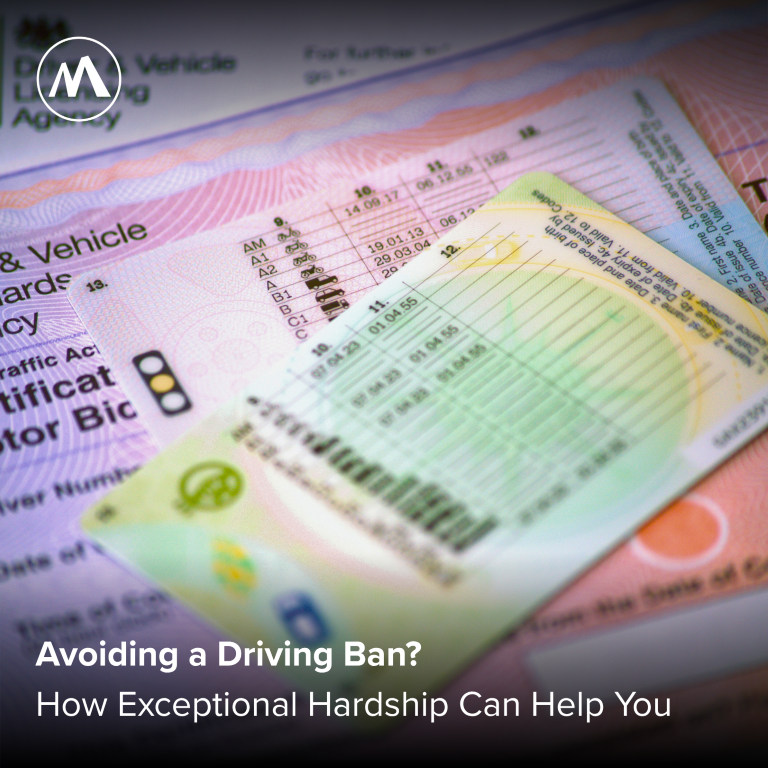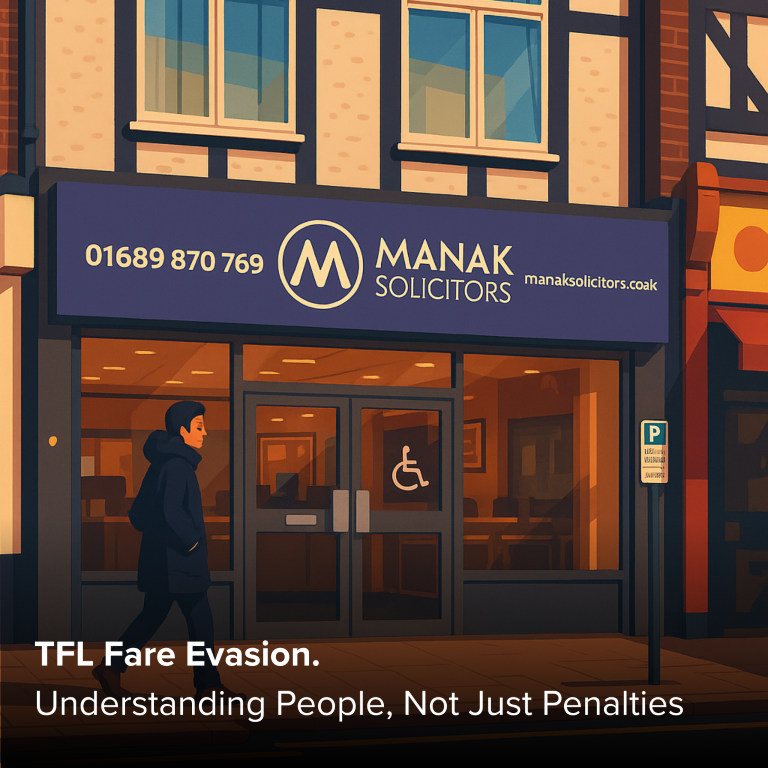
This past weekend, our team was proud to attend the Big Jalebi Diwali Charity Ball, hosted by Sumeet Jalan. The event brought together businesses, community members, and charities for a festive evening of connection and giving back.We were delighted to support three fantastic causes: Madlani Cancer Support, Yoga Mission, and DEBRA UK.Madlani Cancer Support offers holistic, non-medical support to anyone affected by cancer and their loved ones — based in Kent but serving more broadly. Madlani Cancer SupportDEBRA UK is the national charity for people living with the rare skin condition epidermolysis bullosa (often called “butterfly skin”) and funds research as well as patient support. Debra UKYoga Mission focuses on providing educational and health-related support in India, extending the evening’s reach beyond borders. Yoga MissionEvents like this matter because they are about more than the celebration: they are about how community, culture, and charitable partnership can come together to make a positive difference. At Manak Solicitors, it’s about action: showing up, supporting worthwhile causes, and creating connections that matter.Thank you to Sumeet Jalan, the event team, and all the guests who made the night meaningful. We’re already looking forward to how we can continue working together in the year ahead.

The recent Supreme Court ruling in the high-profile case of Standish v Standish [2025] UKSC 26 has sent shockwaves through the legal and financial planning communities. The judgment not only clarified the treatment of non-matrimonial assets in divorce proceedings but also reignited the conversation around the importance of prenuptial agreements—particularly for high-net-worth individuals and families engaging in estate planning.Case SummaryClive Standish, a retired banker and former CFO of UBS, transferred approximately £77.8 million in assets to his wife, Anna Standish, in 2017 as part of a tax planning strategy to mitigate inheritance tax liabilities. The intention was for these assets to be placed into trusts for the benefit of their children. However, the trusts were never established, and the assets remained in Mrs Standish’s sole name.When the couple divorced in 2020, the question arose: had these assets become matrimonial property and thus subject to the sharing principle?Supreme Court’s Key FindingsNon-matrimonial property (NMP)—typically assets acquired before marriage or by inheritance/gift—should not be subject to the sharing principle unless it has been "matrimonialised."Matrimonialisation occurs when parties treat NMP as shared over time. Mere transfer of title, especially for tax purposes, is insufficient.The Court ruled that 75% of the transferred assets retained their non-matrimonial character and should revert to Mr Standish. Only 25%—representing growth during the marriage—was subject to equal division.This decision reduced Mrs Standish’s award from £45 million to £25 million, marking one of the most significant reductions on appeal in English legal history.Why This Matters: The Case for Prenuptial AgreementsThe Standish ruling underscores a critical truth: intention and documentation matter. Had the couple entered into a prenuptial or postnuptial agreement clearly outlining the treatment of such transfers, much of the litigation could have been avoided.Key Reasons to Consider a PrenupReasonExplanationAsset ProtectionSafeguards pre-marital wealth, inheritance, or business interests from being divided on divorce.Clarity & CertaintyReduces ambiguity and potential disputes over asset division.Tax & Estate PlanningComplements strategies like gifting or trust creation by clarifying ownership and intent.Second Marriages & Blended FamiliesEnsures children from previous relationships are protected.Business ContinuityPrevents disruption to business ownership or control in the event of divorce.Legal Standing in the UKWhile prenuptial agreements are not automatically binding in England and Wales, courts increasingly give them significant weight—especially when:Both parties had independent legal adviceThere was full financial disclosureThe agreement was entered into freely and well in advance of the weddingThe terms are fair and meet the needs of both partiesThe 2010 case Radmacher v Granatino set the precedent, and the Law Commission has since recommended formal legal recognition of prenups—a proposal still under government review.Final ThoughtsThe Standish case is a wake-up call for couples—especially those with significant or complex assets. It reinforces the need for proactive legal planning and the value of prenuptial agreements in safeguarding wealth, clarifying intentions, and avoiding costly disputes.At Manak Solicitors, our family law specialists are experienced in drafting robust, fair, and enforceable prenuptial agreements tailored to your unique circumstances. Whether you're planning a marriage, navigating estate planning, or seeking to protect family wealth, we’re here to help.Contact us today to schedule a confidential consultation

Facing a Transport for Wales (TfW) fare evasion allegation can be daunting. Whether you’ve received a Witness Statement (MG11), a letter from Transport Investigations Limited (TIL), or a Single Justice Procedure Notice (SJPN), the risks of fines, a criminal record, or complications with your career or visa are significant. At Manak Solicitors, led by expert fare evasion solicitor Samir Moftah, we specialise in resolving TfW fare evasion cases swiftly and effectively, often securing out-of-court settlements to safeguard your future. With over 1,000 fare evasion cases settled since May 2021 and a 5-star Trustpilot rating from 438 reviews, we’re here to guide you through this stressful process. In this blog, we’ll explore TfW’s fare evasion enforcement, the prosecution process, potential consequences, and how Manak Solicitors can help you avoid a criminal conviction.Understanding Transport for Wales Fare EvasionTransport for Wales operates across key routes, including Cardiff to Swansea, Newport to Holyhead, and cross-border services to England (e.g., Shrewsbury to Birmingham). In 2024, TfW intensified fare evasion enforcement, contributing to the UK rail industry’s £240 million annual losses from fare dodging. Their Revenue Protection Officers (RPOs) use ticket barriers, handheld scanners, and Ticket account history checks to catch offenders at stations like Cardiff Central and Newport.Common TfW Fare Evasion Offences:Short-Faring: Purchasing a ticket for a shorter journey (e.g., Cardiff to Newport but travelling to Swansea).Invalid Railcards: Using an expired 16-25 Railcard or someone else’s discount card.No Ticket: Boarding without a valid ticket or paying only when challenged by an inspector.Misuse of Passes: Using an invalid staff pass or season ticket.How TfW Enforces:RPOs issue an MG11 Witness Statement (e.g., reference TfWMG000) with incident details (date, journey, badge number).TfW, often via TIL, sends a letter requesting your version of events within 21 days.Failure to settle may lead to an SJPN and Magistrates’ Court prosecution.Manak’s expertise ensures we navigate these complexities effectively.The TfW Prosecution Process and RisksTfW’s fare evasion prosecutions follow a clear path, with serious consequences if not addressed promptly:Initial Contact: An RPO issues an MG11 or TIL sends a letter requesting mitigating circumstances.Notice of Intention to Prosecute: TfW or TIL issues a formal notice, requiring a response within 21 days.Single Justice Procedure Notice (SJPN): If unresolved, an SJPN is sent, prompting a guilty or not guilty plea, leading to court.Court Outcome: A guilty verdict results in: A criminal record (one year for byelaw offences, up to 11 years on enhanced DBS checks). Fines up to £1,000, plus TfW’s legal costs and unpaid fares. Potential career loss in regulated sectors (e.g., law, finance, teaching) or visa complications.Career Impact: A criminal record can bar professionals from regulated roles or trigger DBS disclosures.Visa Issues: Convictions may complicate UK visa renewals or citizenship applications.Financial Burden: Court fines and costs can exceed £1,500, far more than early settlements.Led by Samir Moftah, a qualified solicitor since 2010 who has achieved thousands of settlements, Manak Solicitors offers tailored strategies to resolve TfW cases efficiently:Out-of-Court Settlements: We negotiate directly with TfW or TIL, leveraging Samir’s strong relationships with prosecutors to secure settlements, often within 24 hours, avoiding court and criminal records.Mitigation Letters: We craft compelling responses to MG11 or TIL notices, highlighting remorse, financial hardship, or genuine errors to minimize penalties.Statutory Declarations: For convictions in absentia (e.g., missed SJPN due to address errors), we file statutory declarations under Section 14 of the Magistrates’ Courts Act 1980, faster than court delays (six months).Interview Avoidance: We request written correspondence to prevent self-incrimination.Samir has settled 100% of TfW cases out-of-court.Contact Us TodayDon’t let a fare evasion allegation derail your future, Manak Solicitors can help.Call Samir Moftah at 07731868916 or 01689 870769 or send an enquiry to [email protected] . Act now to avoid a criminal record and resolve your case quickly.

Understanding Exceptional Hardship: A Guide to Protecting Your Driving LicenceIf you’re facing the risk of a driving ban due to accumulating 12 or more penalty points on your driving licence, you may have heard of the term "exceptional hardship." This legal argument can potentially prevent a driving ban, allowing you to keep your licence despite reaching the threshold for disqualification. At Manak Solicitors, we specialise in helping drivers navigate this complex process. In this blog, we’ll explain what exceptional hardship is, how it works, and how our expert legal team can assist you in building a strong case to protect your livelihood.What is Exceptional Hardship?Exceptional hardship is a legal plea that can be made in court to avoid a driving disqualification when you’ve accumulated 12 or more penalty points within a three-year period. Under UK law, reaching this threshold typically results in a minimum six-month driving ban under the "totting up" system. However, if losing your licence would cause exceptional hardship to you or others, the court may choose not to impose a ban or reduce the length of the disqualification.Exceptional hardship is not about avoiding responsibility for your driving offences but demonstrating that a ban would have a disproportionately severe impact on your life or the lives of those who depend on you. The court will consider the unique circumstances of your case to determine whether your situation qualifies.What Qualifies as Exceptional Hardship?The definition of exceptional hardship is not strictly outlined in law, as each case is judged on its individual merits. However, the hardship must be significant and go beyond the inconvenience that naturally comes with losing a driving licence. Common examples of exceptional hardship include: Loss of Employment: If you rely on driving to carry out your job (e.g., taxi drivers, delivery drivers, or sales representatives) and losing your licence would result in losing your job, this could constitute exceptional hardship. You must demonstrate that alternative employment is not readily available. Impact on Dependents: If others rely on you for transport, such as elderly relatives, children, or individuals with disabilities, a driving ban could severely affect their quality of life. Financial Hardship: If losing your job due to a driving ban would lead to significant financial difficulties, such as inability to pay a mortgage or support your family, this may be considered. Health and Mobility Issues: If you or someone you care for has medical needs that require you to drive, such as frequent hospital visits, this could strengthen your case. Lack of Alternative Transport: In rural areas with limited public transport, losing your licence could isolate you or prevent you from carrying out essential tasks.The court will expect clear evidence to support your claim, such as payslips, medical records, or letters from employers or dependents. Simply stating that a ban would be inconvenient is unlikely to succeed.How to Present an Exceptional Hardship CaseSuccessfully arguing exceptional hardship requires careful preparation and a compelling presentation in court. Here’s how you can strengthen your case: Gather Evidence: Collect documents that demonstrate the impact a driving ban would have. This could include employment contracts, payslips, mortgage statements, or letters from doctors or family members. Be Honest and Specific: The court will scrutinise your claims, so it’s crucial to provide accurate and detailed information about your circumstances. Seek Expert Legal Advice: An experienced motoring offence solicitor can help you build a persuasive case, ensuring all relevant factors are presented effectively. At Manak Solicitors, our team has a proven track record of helping drivers avoid disqualification through exceptional hardship arguments. Prepare for Court: You’ll need to attend a magistrates’ court hearing to present your case. Your solicitor can guide you on what to expect and how to present your argument convincingly.Why Choose Manak Solicitors for Exceptional Hardship Cases?At Manak Solicitors, we understand how critical your driving licence is to your daily life. Our dedicated team of motoring law specialists has extensive experience in handling exceptional hardship cases across the UK. Here’s why drivers trust us: Expertise: Our solicitors are well-versed in motoring law and know how to craft compelling arguments tailored to your unique situation. Personalised Approach: We take the time to understand your circumstances and gather the evidence needed to build a strong case. Proven Success: We have helped countless drivers avoid driving bans by successfully arguing exceptional hardship. Nationwide Service: Whether you’re in Bromley, Biggin Hill, Orpington, Sevenoaks, Gravesend, or anywhere else in the UK, we can represent you in court.Key Considerations for Exceptional Hardship One-Time Argument: You can only use the same exceptional hardship argument once every three years. If you accumulate more penalty points after a successful plea, you’ll need to present a new hardship case. Penalty Points Remain: Even if your exceptional hardship plea is successful, the penalty points will stay on your licence, and you’ll need to avoid further offences to prevent reaching the 12-point threshold again. Court Discretion: The decision to accept an exceptional hardship plea is at the court’s discretion, so professional legal representation is crucial to maximise your chances of success.How Manak Solicitors Can Help You Avoid a Driving BanFacing a driving ban can be stressful, but you don’t have to navigate it alone. At Manak Solicitors, we’re committed to helping you keep your driving licence and protect your livelihood. Our expert solicitors will: Review your case thoroughly to identify grounds for exceptional hardship. Gather and organise the necessary evidence to support your plea. Represent you in court with a compelling argument tailored to your circumstances. Provide clear, practical advice to help you avoid future offences.Contact Manak Solicitors TodayIf you’re at risk of a driving ban due to penalty points, don’t wait until it’s too late. Contact Manak Solicitors today to discuss your case and explore whether an exceptional hardship plea could help you avoid disqualification. Our friendly team is here to guide you every step of the way.Call us now at 01689 870769 or 07731 868916Email us at [email protected] ([email protected])Visit our website at https://manaksolicitors.co.uk/ to schedule a consultationOur Offices: Bromley, Biggin Hill, Orpington, Sevenoaks, and Gravesend Let Manak Solicitors help you protect your driving licence and keep you on the road.

Charged with Driving Without Due Care and Attention or Failure to Stop? How Manak Solicitors Can HelpBeing charged with driving without due care and attention or failure to stop can be a daunting experience, with potential penalties including fines, penalty points, or a driving ban. At Manak Solicitors, we specialise in defending motoring offences, helping drivers in Bromley, Biggin Hill, Orpington, Sevenoaks, Gravesend, and across the UK protect their driving licences. This blog explains these offences, their penalties as outlined by the Sentencing Council, and how our expert legal team can help you achieve the best possible outcome.What is Driving Without Due Care and Attention?Driving without due care and attention, also known as "careless driving," is an offence under Section 3 of the Road Traffic Act 1988. It occurs when a driver’s standard of driving falls below that expected of a competent and careful driver. Examples include: Dangerous overtaking Ignoring traffic signs or signals Using a mobile phone while driving Tailgating or misjudging road conditionsAccording to the Sentencing Council guidelines, the prosecution must prove your driving was careless based on the circumstances, which can be subjective and open to challenge with skilled legal representation.What is Failure to Stop?Failure to stop, under Section 170 of the Road Traffic Act 1988, occurs when a driver involved in an accident fails to stop at the scene or report it to the police within 24 hours. This offence often accompanies careless driving charges and may involve: Leaving the scene after colliding with another vehicle, property, or person Failing to provide details to other parties involved Not reporting the incident to the police when requiredThe Sentencing Council guidelines emphasize that this offence is treated seriously due to its impact on road safety and accountability. However, valid defences, such as being unaware of the accident, may apply.Penalties Under Sentencing Council GuidelinesThe Sentencing Council provides structured penalties based on the severity of the offence and culpability. Below are the accurate penalties for both offences. Driving Without Due Care and Attention Sentencing Council, 2017: Category 1 (Highest Seriousness): Starting Point: Band C fine (150% of weekly income). Range: Band C fine. Disqualification/Points: Consider disqualification or 7–9 points. Category 2: Starting Point: Band B fine (100% of weekly income). Range: Band B fine. Disqualification/Points: 5–6 points. Category 3 (Lowest Seriousness): Starting Point: Band A fine (50% of weekly income). Range: Band A fine. Disqualification/Points: 3–4 points. The court must endorse the driving licence with 3–9 points if no disqualification is imposed. Aggravating factors (e.g., causing injury, high speed) may increase penalties, while mitigating factors (e.g., clean driving record, momentary lapse) may reduce them. Failure to Stop/Report an Accident Sentencing Council, 2017: Category 1 (Highest Seriousness): Starting Point: High-level community order. Range: Low-level community order to 26 weeks’ custody. Disqualification/Points: Disqualification for 6–12 months or 9–10 points (extend disqualification if imposing immediate custody). Category 2: Starting Point: Band C fine. Range: Band B fine to medium-level community order. Disqualification/Points: Disqualification up to 6 months or 7–8 points. Category 3 (Lowest Seriousness): Starting Point: Band B fine. Range: Band A fine to Band C fine. Disqualification/Points: 5–6 points. Additional Notes: Courts consider factors like deliberate failure to stop, extent of damage or injury, and attempts to report later. Imprisonment (up to 7 years) is rare but possible in extreme cases, particularly if combined with other serious offences. If you accumulate 12 or more penalty points within three years, you risk a minimum six-month ban under the "totting up" system (endorsement code TT99). New drivers (within two years of passing their test) face licence revocation if they accrue 6 or more points. In totting-up cases, you may argue exceptional hardship to avoid a ban, and Manak Solicitors can help build a compelling case.Defending Against These ChargesDefending charges of driving without due care and attention or failure to stop requires expertise in motoring law. Possible defences include: Challenging Evidence: The prosecution must prove beyond reasonable doubt that your driving was careless or that you knowingly failed to stop. We can scrutinise evidence like witness statements, CCTV footage, or police reports for inconsistencies. Reasonable Excuse: For failure to stop, you may not have realised an accident occurred or had a valid reason, such as ensuring safety or being in shock. Disputing the Standard of Driving: For careless driving, we can argue that your driving met the standard of a competent driver under the circumstances. Procedural Errors: Mistakes in police procedure, such as incorrect paperwork, could lead to the case being dismissed. Special Reasons: In some cases, special reasons (e.g., an emergency for careless driving) may avoid penalty points or disqualification.Manak Solicitors will thoroughly review your case, using the Sentencing Council guidelines to challenge the prosecution or mitigate penalties.Why Choose Manak Solicitors?Facing motoring offence charges can be stressful, but Manak Solicitors has a proven track record of defending drivers across the UK. Here’s why you should choose us: Specialist Expertise: Our solicitors are experts in motoring law, with extensive experience defending charges like careless driving and failure to stop. Tailored Defence: We build a personalised defence strategy, leveraging Sentencing Council guidelines to highlight mitigating factors and reduce penalties. Local Knowledge: With offices in Bromley, Biggin Hill, Orpington, Sevenoaks, and Gravesend, we understand local courts and procedures. Proven Results: We have helped countless drivers avoid or reduce penalties, protecting their livelihoods and keeping them on the road.What to Do If You’re ChargedIf you’ve been charged with driving without due care and attention or failure to stop, follow these steps: Act Quickly: Contact a solicitor immediately to start building your defence. Time is critical for gathering evidence. Gather Evidence: Collect relevant information, such as dashcam footage, witness details, or photos of the incident scene. Avoid Pleading Guilty Prematurely: Seek legal advice before responding to the charge, as you may have a valid defence or mitigating circumstances. Consider Driver Improvement Courses: For minor careless driving offences, police may offer a National Driver Offender Retraining Scheme course to avoid points, though this is discretionary and unavailable if you’ve completed one within three years.How Manak Solicitors Can HelpAt Manak Solicitors, we’re committed to defending your driving licence and minimising the impact of motoring offence charges. Our services include: Reviewing evidence to identify weaknesses in the prosecution’s case. Building a strong defence or mitigation strategy to reduce penalties or avoid conviction. Representing you in court, whether in Bromley, Sevenoaks, or elsewhere in the UK. Advising on exceptional hardship pleas if you face a totting-up ban. Providing practical advice to avoid future offences.Contact Manak Solicitors TodayDon’t let a motoring offence charge threaten your driving privileges or livelihood. Contact Manak Solicitors today for expert legal advice and representation. Our team is ready to fight for you and help you achieve the best possible outcome.Call us now at 01689 870769 or 07731 868916Email us at [email protected] Visit our website at https://manaksolicitors.co.uk/ to schedule a consultationOur Offices: Bromley, Biggin Hill, Orpington, Sevenoaks, and Gravesend

My child’s partner is making allegations about me, what happens next?When a couple decides to separate or divorce, there will almost invariably be additional issues where children are involved. It is likely that both of you will have different views as to who your children should live with and spend time with. Sometimes, one person may allege that the other parent has or might harm a child, and therefore they may not consider it suitable for that parent to spend time with the child. If your partner alleges that you are a risk to your child, the first step would be for your solicitor to contact them or their legal representative to try to arrange for you to spend time with them in a way that mitigates potential risk to the child. For example, this could include contact being supervised by an agreed third party or in a contact centre, or you providing certain assurances to your ex-partner to assuage their worries.If contact cannot be agreed, you must attempt mediation to try to resolve the issue. A mediator is a qualified impartial professional who helps parents to try to achieve a child-focused solution.If mediation is unsuccessful, you will need to make an application to the court to try to determine the issue. When you do so, your ex-partner may allege that you have or might harm your child. The court will then consider these allegations, usually at your first hearing. If the court believes that, if true and when taken at their highest, the allegations would be a bar to contact between you and the child, a fact-finding hearing may be listed. This is a contested hearing, sometimes taking place over several days, where both parties will be ‘cross-examined’ by the other person’s legal representative. At the end, the Judge will say whether they consider each allegation to be true or not. This is known as ‘making a finding’. If findings are not made against you, usually your solicitor would then seek for contact between you and your child to recommence immediately. In some circumstances, for example if a long time has elapsed since you last spent time with your child, it may be appropriate for the first few sessions to take place in a supervised setting.If findings are made against you, the next steps will depend on the seriousness of them. It may be that contact has to remain supervised, or that you must undertake further work, such as a parenting course. In rare circumstances, such as when a finding is of a very serious nature has been made, the court may order that you only have indirect contact with your child, such as only sending them letters or cards.At Manak Solicitors, we are here to guide you through this process. We have extensive experience dealing with fact-finding hearings, acting for parties who have made allegations and if a party is subjected to allegations. We pride ourselves on representing clients in such matters in a straightforward and effective manner. Book your free 10-minute no obligation call back today.

Understanding the Human Side of TfL Fare Evasion CasesA recent BBC News article, published on 28 May 2025, sheds light on Transport for London’s (TfL) intensified efforts to tackle fare evasion across its network, including the London Underground, buses, and trams. This crackdown aims to address the estimated £150 million annual revenue loss caused by fare dodging. While TfL’s approach involves increased enforcement through revenue protection officers and advanced technology like CCTV and ticket barrier data, the story behind fare evasion is often far more nuanced than it seems. At Manak Solicitors, we recognise that many fare evasion cases involve vulnerable individuals facing challenging life circumstances, not cunning criminals intent on defrauding the system. Our expert legal team is dedicated to providing compassionate and robust support to those facing fare evasion allegations, ensuring their stories are heard and their rights are safeguarded.The Human Face of Fare EvasionThe BBC article highlights that fare evasion can lead to serious consequences, including fines of up to £1,000, criminal prosecution, and, in some cases, a criminal record. Yet, behind these headlines are real people, many of whom are not deliberate wrongdoers but individuals grappling with difficult situations. Fare evasion may stem from financial hardship, mental health struggles, or simple oversights during moments of stress or distraction. For instance, a missed tap-in due to rushing to an urgent appointment, using an expired ticket during a period of financial strain, or misunderstanding complex ticketing rules can result in accusations of fare dodging. These cases often involve vulnerable people such as low-income workers, students, or those experiencing homelessness who may lack the resources or knowledge to navigate TfL’s enforcement processes effectively.At Manak Solicitors, we understand that fare evasion is rarely about masterminding a criminal scheme. Instead, it’s often about human error, desperation, or systemic barriers that make compliance challenging. The BBC article notes TfL’s efforts to balance enforcement with fairness, offering options like penalty fares or warnings to resolve cases out of court. However, without proper legal guidance, vulnerable individuals risk facing disproportionate penalties or even prosecution for what may have been an honest mistake.How Manak Solicitors Can Support YouManak Solicitors specialises in representing clients accused of fare evasion on TfL services, recognising the unique circumstances behind each case. Our experienced team is committed to providing tailored legal support to protect your rights and achieve the best possible outcome, particularly for those facing vulnerabilities. Our services include:Compassionate Case Assessment: We take the time to understand your situation, including any personal or financial hardships that may have contributed to the alleged fare evasion. By thoroughly reviewing TfL’s evidence, we identify grounds for defence, such as errors in enforcement or mitigating circumstances.Negotiation for Fair Outcomes: Where possible, we negotiate with TfL to secure out-of-court resolutions, such as reduced penalty fares, warnings, or case withdrawals, to avoid prosecution and protect your record.Robust Court Representation: If your case proceeds to court, our skilled solicitors provide strong representation, presenting a defence that highlights your circumstances and challenges unfair allegations. We aim to minimise penalties and prevent convictions that could impact your future.Protecting Your Future: A criminal record for fare evasion can have lasting consequences, including difficulties with employment or travel. We work diligently to avoid convictions, particularly for vulnerable clients who may already face significant challenges.Personalised Guidance: We provide clear, empathetic advice tailored to your situation, ensuring you understand your options and feel supported throughout the process.Why Choose Manak Solicitors?With offices in London and Kent, Manak Solicitors is well-placed to assist clients across the TfL network. Our team combines in-depth knowledge of transport regulations with a compassionate approach, recognising that fare evasion cases often involve more than meets the eye. We are committed to advocating for vulnerable individuals, ensuring their voices are heard and their circumstances are considered.Samir Moftah’s Expertise in Fare Evasion CasesLeading our efforts is Samir Moftah, a highly experienced solicitor at Manak Solicitors with extensive expertise in TfL fare evasion cases. Samir has successfully represented numerous clients, including those facing vulnerabilities such as financial hardship or mental health challenges. His ability to negotiate with TfL authorities and build compelling representations has helped many avoid harsh penalties and secure fair resolutions. Samir’s client-focused approach ensures that each case is handled with care, sensitivity, and a commitment to achieving the best outcome, particularly for those whose circumstances make them especially vulnerable.The BBC article highlights the complexity of TfL’s fare evasion crackdown, but it also underscores the need for compassionate legal support. At Manak Solicitors, we believe that fare evasion cases often involve human stories of struggle, not criminal intent. Under Samir Moftah’s team’s expert guidance, we are here to help you navigate these challenges with dignity and fairness.Contact Us TodayDont let a fare evasion allegation derail your future. Whether you’re facing a TfL prosecution, a Southeastern court summons, or a Chiltern Railways investigation, Manak Solicitors can help.Call Samir Moftah at 07731868916 or 01689 870769 or send an enquiry to [email protected] . Act now to avoid a criminal record and resolve your case quickly.

A recent BBC News article https://www.bbc.co.uk/news/articles/clyq88we2kko, published on 28 May 2025, highlighted South Western Railway’s (SWR) robust campaign against fare evasion, recovering £3.4 million from fare dodgers in a single year. Operating services between London Waterloo and regions including Surrey, Hampshire, Berkshire, Dorset, Devon, Somerset, and Wiltshire, SWR estimates that seven million ticketless journeys cost the operator £40 million annually. Among the cases spotlighted was one involving an offender who evaded £49,000 over five years a high-profile matter successfully handled by Manak Solicitors, led by our expert solicitor Samir Moftah. While respecting client confidentiality with consent from our client, we handled one of the largest cases in history of fare evasion. We wish to make clients aware of how our dedicated legal services can help you navigate fare evasion allegations with confidence.The £49,000 Case: A firm that you can rely onThe BBC article underscores the scale of fare evasion, with SWR’s enforcement officers working diligently to address ticketless travel, which costs the UK rail industry nearly £240 million annually. The £49,000 case, involving alleged fare evasion over five years, was a complex and high-stakes matter. Samir Moftah, a leading solicitor at Manak Solicitors, represented the client in this case and secured a successful outcome. This achievement demonstrates our firm’s ability to handle even the most challenging fare evasion cases, ensuring our clients receive the best possible resolution while protecting their rights and reputation. Our client avoided a criminal record.Understanding Fare Evasion ChallengesAs the BBC article notes, SWR acknowledges that “genuine mistakes happen,” but the operator is focused on tackling systematic abuse. Fare evasion allegations can lead to serious consequences, including fines of up to £1,000, criminal prosecution, or a criminal record that could impact employment and travel opportunities. Whether your case involves a single incident or a more complex matter like the £49,000 case, Manak Solicitors has the expertise to deliver results.How Manak Solicitors Can Help YouManak Solicitors specialises in representing clients accused of fare evasion on SWR and other transport networks, offering comprehensive legal support to achieve the best possible outcomes. Our services include:Case Assessment: We thoroughly review your case to ensure a strong submissions to settle cases.Protecting Your Future: We work to avoid criminal records, safeguarding your employment and travel prospects.Personalised Support: Every client receives clear, tailored guidance to navigate the process with confidence.Why Choose Manak Solicitors?With offices in London and Kent, Manak Solicitors is well-positioned to assist clients across SWR’s network and beyond. Samir Moftah’s success in the £49,000 case highlights our firm’s ability to deliver results in complex fare evasion matters. Our team’s expertise and client-focused approach make us the trusted choice for those facing fare evasion allegations.The BBC article emphasises the importance of addressing fare evasion, but it also underscores the need for expert legal representation. At Manak Solicitors, we’re committed to achieving outcomes like the one in the £49,000 case, helping clients move forward with peace of mind.Contact Manak Solicitors TodayIf you’re facing a fare evasion allegation on South Western Railway or any other transport network, don’t face it alone. Contact Manak Solicitors for a confidential consultation. Our expert team, led by Samir Moftah, is ready to fight for your rights and secure the best possible resolution. Visit our website at www.manaksolicitors.co.uk or call us at 01689 870769 to speak with Samir Moftah. Let us help you achieve a successful outcome, just as we did in the £49,000 case.Manak Solicitors – Your trusted partner in fare evasion disputes.

Your Trusted Partner in TFL Fare Evasion DisputesA recent article by The Independent (28 May 2025) brings to light the growing issue of fare evasion across Transport for London’s (TFL) network particularly the London Underground. With fare dodging reportedly costing TFL around £150 million annually, enforcement measures have intensified, and the penalties for passengers are steeper than ever.At Manak Solicitors, we understand how overwhelming a fare evasion allegation can feel. What may start as an honest mistake can quickly become a serious legal matter. Our experienced team offers calm, clear and expert legal support, ensuring your rights are protected and your case is handled with care.The TFL Fare Evasion CrackdownAccording to The Independent, TFL is increasing its use of revenue protection officers and advanced technologies, such as CCTV and ticket barrier data, to clamp down on fare evasion. Passengers found evading fares can face:Penalty fines of up to £1,000Criminal prosecutionA lasting criminal recordWhat may seem like a minor mistake, such as forgetting to tap in or using an invalid ticket, can escalate quickly without proper legal guidance.TFL has also introduced more measured enforcement options, such as warnings and out-of-court settlements. However, understanding and accessing these outcomes can be challenging without legal representation.How Manak Solicitors Can HelpWe specialise in fare evasion cases across the TFL network—including the Underground, buses, and trams. We know these cases often have more nuance than first meets the eye, and we’re here to help you navigate them.Our legal support includes:Expert Case Review: We analyse TFL's evidence to find discrepancies or possible defences, particularly in cases of mistaken or accidental fare evasion.Negotiation and Settlement: We strive to resolve cases through warnings or out-of-court agreements, whenever possible, thereby avoiding prosecution.Protecting Your Future: A criminal conviction can impact employment, visas, and travel. We work to protect your record and reputation.Tailored Legal Advice: Every case is unique. We help you understand your rights and the best course of action, whether that’s challenging the case, paying a penalty, or defending against prosecution.Why Choose Manak Solicitors?With offices in London and Kent, Manak Solicitors is well-placed to support clients across the TFL network. We combine in-depth legal expertise with a supportive, client-first approach to achieve the best possible outcomes for those facing fare evasion allegations.Meet Samir Moftah – Our Fare Evasion SpecialistSamir Moftah leads our fare evasion team. As a seasoned solicitor with extensive experience in TFL-related matters, Samir has helped countless clients avoid convictions and secure fair resolutions. His sharp legal knowledge and calm, methodical approach offer our clients reassurance and results.Need Support? Speak to Us TodayIf you've received a fare evasion letter or are facing prosecution from TFL, don’t panic; speak to us first. Our team, led by Samir Moftah, is here to guide you clearly and confidently through the process.Call us on 01689 870769Visit: www.manaksolicitors.co.ukManak Solicitors — Trusted, professional, and here to help.


 Quote
Quote




